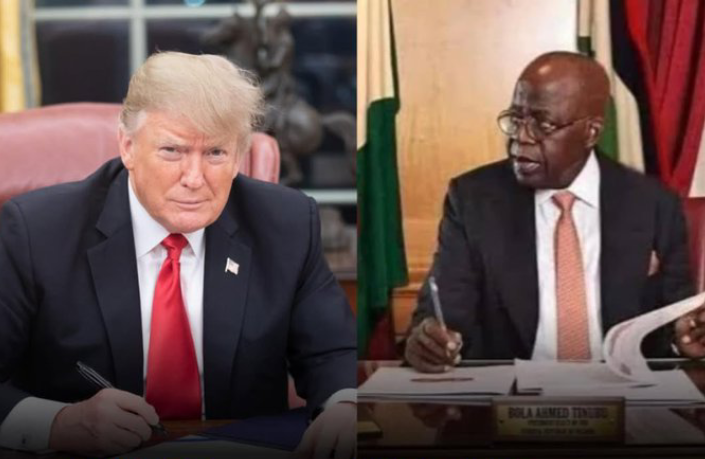
“I Choose Faith Over Vengeance” – Erika Kirk Forgoes Death Penalty for Husband’s Alleged Killer

In a decision that has stunned many and moved others to tears, Erika Kirk, the widow of conservative activist Charlie Kirk, has declared that she will not personally seek the death penalty for the man accused of murdering her husband, saying her faith in Christ has compelled her to leave the matter in the hands of the government and the justice system. The statement comes just weeks after the shocking killing of Charlie Kirk, a figure whose voice had become synonymous with right-wing activism in the United States, sparking nationwide mourning, heated political debates, and calls for swift justice. Now, with the grief still raw and the trial ahead, Erika’s declaration has added a moral and spiritual dimension to the already high-profile case, sparking conversations not only about justice but also about forgiveness, faith, and the meaning of true strength in the face of unimaginable loss.
Speaking with a soft but unwavering tone, Erika revealed that while her pain remains indescribable, she could not reconcile her Christian faith with a personal demand for the accused to be executed. “I have lost the love of my life, my best friend, and the father of my children,” she said, holding back tears. “But I will not allow hate or vengeance to consume me. My faith teaches me that vengeance belongs to the Lord, not to me. I will allow the government and the courts to decide the punishment, but I will not personally call for the death penalty.” Her words were met with an emotional wave of reactions, with some praising her extraordinary act of forgiveness while others questioned whether such grace could be justified in the wake of such a brutal act.
Charlie Kirk, who rose to prominence as the founder of Turning Point USA, was both admired and criticized for his outspoken views on politics, culture, and the role of Christianity in American life. His sudden death under violent circumstances rocked political circles, with allies and opponents alike acknowledging the gravity of the loss. The suspect, whose name has not yet been formally released pending the trial process, is facing charges of first-degree murder and could face capital punishment under state law. Prosecutors have indicated they are still reviewing all legal options, but Erika’s decision has already influenced public discourse around the case.
Observers have noted that Erika’s stance represents not only a personal act of forgiveness but also a public testimony to her husband’s lifelong commitment to Christian values. Friends close to the couple have said that Charlie often spoke about the importance of grace and redemption, even when confronted with injustice. “This is exactly what Charlie would have wanted,” one family friend said. “He believed that justice must be served, but he also believed in the power of forgiveness and the higher calling of faith.” Still, others argue that Erika’s refusal to seek the death penalty could complicate the path forward, especially in a politically charged environment where capital punishment is often debated as a necessary deterrent.
Her announcement has also reignited conversations about the role of faith in shaping responses to tragedy. Many Christian leaders have come out in support of Erika, calling her decision a profound act of spiritual strength. “What Erika has done is not weakness, but courage,” said a prominent pastor who spoke at Charlie’s memorial service. “She is living out the very words of Christ, who told us to forgive even our enemies. In the darkest valley, she has chosen light.” Yet in the same breath, critics online have accused her of being too lenient, arguing that forgiveness should not come at the expense of justice for the dead. Social media has become a battlefield of opinions, with hashtags related to the case trending as Americans debate whether mercy or retribution should guide the outcome.
Erika, however, seems unmoved by the noise of public opinion. In a written statement she released after her initial remarks, she emphasized that her decision does not absolve the accused of responsibility nor diminish the seriousness of the crime. “Let me be clear,” she wrote, “justice must and will be pursued. My decision not to seek the death penalty is not an act of naivety, nor is it an invitation for leniency. It is simply a reflection of my conviction that judgment of this magnitude belongs to God and the government He has ordained, not to me. I trust the legal system to do its work, and I will accept whatever verdict and sentence it delivers.”
The wider political world is also taking note. Some conservative figures have rallied around Erika, praising her grace as a living witness of Christian faith in action. Others, particularly from the tough-on-crime faction, have hinted that not seeking the death penalty could send the wrong message about consequences for violence. In a polarized society already divided on capital punishment, Erika’s personal act of conscience has landed squarely in the crossfire of national debate. Yet, despite the noise, it is clear her words carry a weight that transcends politics.
For Erika herself, the focus remains on her family and honoring her husband’s memory. Those who attended Charlie’s funeral described an atmosphere of both deep grief and resilient faith. Erika, though visibly heartbroken, spoke of her determination to carry forward the values that Charlie championed and to raise their children in the spirit of the faith they both cherished. “Charlie lived boldly for truth,” she told mourners. “And I will live boldly for love. That is how we win—not through vengeance, but through unwavering faith.”
Legal experts suggest that while Erika’s stance may not directly affect the prosecutor’s decision to pursue the death penalty, it could weigh heavily on how the jury and the public view the case. Victims’ families often have a significant voice in such proceedings, and her public renunciation of personal vengeance could shape the tone of the trial when it begins. Already, legal analysts are predicting that the defense may use Erika’s statement to argue against capital punishment, while prosecutors weigh whether pursuing it would contradict the expressed wishes of the victim’s family.
Beyond the courtroom, Erika’s choice is already being framed as a defining moment in the ongoing cultural conversation about justice, faith, and forgiveness in America. Her decision has forced both supporters and critics to confront uncomfortable questions: Can forgiveness and justice coexist? Does mercy diminish accountability, or does it elevate humanity to a higher moral ground? In a nation grappling with cycles of violence, political division, and cries for retribution, Erika’s example offers a countercultural witness of grace under fire.
As the legal process moves forward, the world will be watching not only the trial of the accused but also the unfolding testimony of a widow who has chosen faith over vengeance. Whether her stance ultimately shapes the outcome of the case remains uncertain, but what is clear is that her words have already left an indelible mark on the national conscience. In her grief, Erika Kirk has extended an invitation—controversial to some, inspiring to others—to imagine a world where forgiveness is possible even in the shadow of the deepest loss. And in doing so, she has turned a moment of tragedy into a testimony of faith, reminding all who watch that sometimes the greatest act of strength is to surrender judgment to God.


